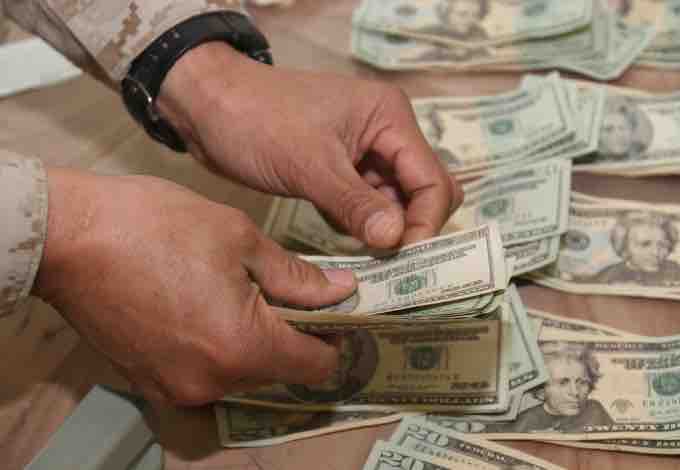Money acts as a standard measure and common denomination of trade. As a result, it is a basis for quoting and bargaining prices. It is necessary for developing efficient accounting systems, but its most important use is that it provides a method to compare the values of dissimilar objects. Money functions as:
- A medium of exchange
- A unit of account
- A store of value
A Medium of Exchange
When money is used to intermediate the exchange of goods and services, it is performing the function of a medium of exchange. It avoids the inefficiencies of a barter system, such as the dependence on the occurrence of a coincidence of wants. To be widely acceptable, a medium of exchange should have stable purchasing power. Therefore, it should possess the following characteristics:
- Valuation of common assets
- Constant utility
- Low cost of preservation
- Transportability
- Divisibility
- High market value in relation to volume and weight
- Recognizability
- Resistance to counterfeiting
Gold was popular as a medium of exchange and store of value because it was inert. Gold was convenient to move because even small amounts of it had considerable value. Gold also had a constant value due to its special physical and chemical properties, which made it cherished by men.
A Unit of Account
A unit of account is a standard numerical unit of measurement of the market value of goods, services, and other transactions. Also known as a "measure" or "standard" of relative worth and deferred payment, a unit of account is a necessary prerequisite for the formulation of commercial agreements. To function as a unit of account, whatever is being used as money must meet these characteristics:
- It must be divisible into smaller units without a loss of value. For example, precious metals can be coined from bars or melted down into bars again.
- It must be fungible. In other words, one unit or piece must be perceived as equivalent to any other. This is why diamonds, works of art, or real estate are not suitable as money.
- It must have a specific weight, measure, or size in order to be verifiably countable. For instance, coins are often milled with a reeded edge, so that any removal of material from the coin (lowering its commodity value) will be easy to detect.
A Store of Value
To act as a store of value, money must be able to be reliably saved, stored, and retrieved. Moreover, it must be predictably usable as a medium of exchange when it is retrieved. The value of the money must also remain stable over time. Put simply, money acting as a store of value allows its owner to transfer real purchasing power from the present to the future. Some have argued that inflation, by reducing the value of money, diminishes its ability to function as a store of value. Money can also function as a "standard of deferred payment," which means that its status as a legal tender allows it to function for the discharge of debts.

Functions of Money
Money, such as the U.S. dollar, functions as a medium of exchange, a unit of account, and a store of value.